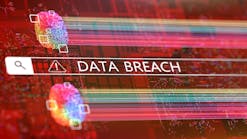Employee fraud has always been a major concern for enterprises. No industry is exempt from this threat or the ensuing substantial damages. A 2018 report from the Association of Certified Fraud Examiners (ACFE) found that occupational fraud affected 23 different categories of business and resulted in total losses of more than $7 billion.
Until recently, enterprises had a few advantages for mitigating criminal behavior. Conducting a corporate investigation while employees were in the same office environment was relatively straightforward. On-site employees worked only on company-supplied devices that were all connected to the same internal network. Closely interacting with fellow employees deterred some illicit activity. Organizations with strict fraud awareness training and tip lines to report employee abuse saw good results.
But when the Covid-19 pandemic hit and employees began working from home, enterprises lost these key advantages.
Remote workers could no longer be supervised directly. More troubling, they often did company work on their own personal digital devices over unsecured network connections, putting sensitive and proprietary company assets at risk.
The mechanism of corporate investigations that worked so well when employees were in a single location was not equipped to meet the challenge of detecting fraud in this transformed landscape.
Even after the pandemic subsides, remote workers will remain in place to some degree—and so will an escalation in fraud. In an ACFE survey, 90% of respondents said that they expect to see an increase in fraud in 2021 compared to previous years, with 44% saying "this change will likely be significant."
Addressing this problem requires an innovative solution that deals efficiently with today's realities, ensures transparency, respects employee privacy—but above all, protects company assets. Before we look at the capabilities available solutions provide, let's first assess the challenges enterprises face.
1. Cutting Down Risk
Even the most vigilant companies might be surprised to learn how undetected fraud burrows into American businesses. A typical case of occupational fraud can go on for 14 months before being detected and can cause $8,300 in losses per month, according to an ACFE report.
When fraud is detected or suspected, it's critical that companies move fast to allay the damage and get the facts.
Enterprises need a solution that can pare these risks by providing endpoint data collection and analysis that is simple, effective, and illuminating for a variety of threats, including:
- Employee theft of company funds through unethical accounting practices, unauthorized charges on company cards or vendor kickbacks.
- A downturn in productivity caused when remote workers use their digital devices to engage in personal activities during regular business hours, such as web surfing or game playing.
- A data breach where valuable company or customer information is used by employees for their own self-interest. An IBM study found that 70% of companies with a remote workforce anticipate that their data breach costs will rise from past years.
- Theft or unauthorized use of intellectual property. The Commission on the Theft of American Intellectual Property estimates that the cost of IP losses range from $225 billion to $600 billion a year.
It's not surprising that an AFCE report found that "48% of organizations anticipate increased investments in anti-fraud technology" to combat these hazards.
Corporate investigators need tools with the capability to conduct legally sanctioned investigations and dependable data analysis to slash these risks and hold remote workers accountable.
2. Uncovering Bad Behavior Remotely
Some employees may intentionally exploit remote working conditions for their own gain. But remote work has also exacerbated a chronic problem: employees who fall for scams through carelessness, recklessness, or ignorance. Anyone in an organization can be fooled by fraudulent schemes, from senior executives to lower-level support team members. In a recent survey, "43% of people admitted to making a mistake at work that had security repercussions."
Enterprises face a wide range of unethical behaviors, including:
- Employees who get involved in sales schemes with fellow employees or outside parties that undermine the company.
- Employees who compromise themselves and are open to bribery.
- Employees who give vendors preferential treatment in exchange for some type of kickback.
- Employees who take assets from one location and represent them as their own.
- Employees who make unauthorized purchases on company cards or falsify accounting paperwork.
Some solutions are specifically designed to access and collect data from remote computers, so an enterprise could conduct a thorough forensic investigation of suspicious employee activity that meets all legal compliance standards.
3. Getting to The Truth
Something that may look untoward or malicious on the surface may actually turn out to be benign. Having the capability to collect the facts and bring them to the attention of the HR, legal or finance departments of your company is essential for documenting an employee's activities.
There are corporations who need to access information on devices for legal reasons, whether that is for litigation or for investigating internal matters that happen with employees within the organization. It is critical that they be able to see evidence of what happened to reveal the truth of the situation and, as much as possible, to bring to light what is actually happening and really what the root of the matter was.
By having solutions that can uniquely identify every endpoint where data is collected from, companies can have access to every device their remote workforce uses, do a comprehensive audit, and gather evidence to determine the culpability of an employee—or, equally important, their innocence.
4. Finding and Analyzing Pertinent Data Quickly
Knowing where to look for data and what data to look for in a time-efficient way are central to every type of fraud investigation. Examining only a single file on an employee's device could give a distorted or incomplete view into their activities. On the other hand, it is also impractical to gather and examine every file that an employee had access to.
Additionally, corporate investigators will be looking for different kinds of digital evidence depending on the type of unethical behavior they are probing. The ability to look at the employee's browser history can speed up an investigation and lead you to other relevant data.
Certain solutions give you the capability to target the files and data pertinent to your investigation. In fraud cases, for example, you could zero in on employees having access to lists that they should not have. In sexual harassment cases, you could look for chat applications, texts and photos. These capabilities provide a server that facilitates connections between the corporate investigator and the employee's endpoint device.
The investigator would connect to the device and select the files for review, such as the user directory, document files or chat files, and filter for the files they want. After they collect those files, they would disconnect from the employee's device and could now conduct the investigation without needing to interrupt any of the work on the employee's machine. In short, you will get much better insight when you look at the device they're using, rather than a single file.
5. Slashing the Costs of Data Collection
An ACFE survey discovered that the biggest challenges to fighting fraud involve "an inability to travel, difficulties in conducting remote interviews, and a lack of access to evidence."
With employees spread out, it wouldn't be practical to send investigators to every location to collect data or perform a forensic computer investigation. Just the challenge of shipping devices alone would be a logistical nightmare.
However, newly available solutions eliminate these concerns and let you do investigations in as close to real time as possible with remote data collection that gives you lawful access to employee devices.
Companies can instruct their employees that this remote data collection capability exists—at the time of hiring, during the onboarding process or when the solution is installed. This transparency not only respects the employee's privacy, but it may also deter some bad behaviors.
The remote workforce is here to stay, so it is only prudent that enterprises prepare for it accordingly, especially when it comes to risk management. Remote collection solutions can help businesses secure company assets through legally sanctioned, remote computer collection and provide a necessary layer of protection for valuable company assets to help you flourish in this new world of business.
About the Author:
Mark Gambill oversees Cellebrite’s global marketing operations, including product marketing, advertising, promotions, analyst and public relations, field marketing, brand management and corporate events. Mark has over 20 years of executive marketing experience across a diverse set of technology sectors with concentrations in Big Data, AI, Machine Learning and Augmented Analytics.
Prior to joining Cellebrite, he served as the CMO at MicroStrategy, prior to that role, he served as the CMO for Vocus, a global provider of marketing automation software. Mark holds a Bachelor of Science degree from Florida State University and has completed graduate work at INSEAD.



